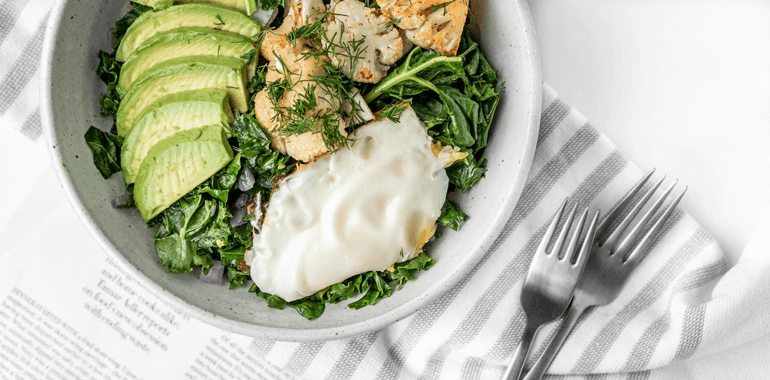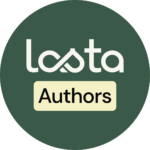Table Of Contents
A fat-free diet eliminates most dietary fats, often pursued for weight management or specific health conditions. While restricting fat intake can benefit certain medical situations, it’s important to understand that not all fats are harmful. Essential fatty acids play critical roles in bodily functions and overall health. This guide explores what fat-free diets entail, when they’re appropriate, and how to balance nutrition while reducing fat consumption.
What is a Fat-Free Diet?
A fat-free diet consists of foods containing minimal to no fat content. This dietary approach eliminates or severely restricts all types of fats, including both harmful trans fats and beneficial ones. People typically adopt no fat diets when dealing with specific medical conditions that affect fat absorption or processing.
Fat-free diets differ from low-fat diets in their strictness. While low-fat approaches allow small amounts of dietary fat, fat-free diets aim to eliminate nearly all fat sources. Despite their restrictive nature, these diets still require careful planning to maintain nutritional balance and prevent deficiencies.
When Fat-Free Diets Are Medically Necessary
Certain medical conditions may require temporary or long-term adherence to fat-free diets. People recovering from gallbladder surgery or managing gallbladder disease often need to restrict fat intake to reduce strain on their digestive system. Similarly, those with pancreatic disorders may benefit from limiting dietary fat to ease digestive discomfort.
Individuals with elevated cholesterol levels might also consider a fat-free or very low-fat diet to help manage their condition. In these cases, increasing soluble fiber intake alongside fat reduction can further support cholesterol reduction. However, any strict dietary change should be discussed with healthcare providers to ensure nutritional needs are met.
Fat-Free Foods List
Many foods naturally contain little to no fat, making them suitable for fat-free diets. Here’s a breakdown of common fat-free food categories:
Grains and Cereals
In their natural state, most grains contain minimal fat. Options include:
- Plain rice (all varieties)
- Plain bagels (without added fats)
- Whole grain cereals (without added oils)
- Wheat and bran products
- Plain oatmeal
For flavor enhancement, pair these with fat-free alternatives like fat-free cheese or yogurt rather than butter or oils.
Fresh Fruits and Vegetables
Most fruits and vegetables contain negligible fat content in their natural state. The primary exceptions are:
- Avocados
- Coconuts
- Olives
Fat content typically increases when cooking additions like butter, oil, or creamy dressings are used. Steaming, boiling, or roasting with minimal oil can help maintain their fat-free status.
Other Fat-Free Options
- Fat-free dairy (skim milk, non-fat yogurt)
- Egg whites
- Fat-free broth
- Legumes (beans, lentils, peas)
- Lean protein options (skinless chicken breast, white fish)

The Hidden Dangers of Fat-Free Diets
Essential Fatty Acid Deficiency
Perhaps the most significant risk of fat-free diets is the potential for essential fatty acid deficiency. Our bodies cannot produce these nutrients independently, making dietary intake crucial. The three main essential fatty acids—linoleic, linolenic, and arachidonic acids—play vital roles in:
- Brain function and development
- Hormone production
- Immune system regulation
- Cell membrane integrity
Without these essential nutrients, serious health complications can develop over time.
Sugar and Salt Substitutions
Many commercial fat-free foods compensate for flavor loss by adding extra sugar, sodium, or artificial ingredients. This substitution often creates foods that might be fat-free but aren’t necessarily healthier. For example, fat-free cookies or ice cream typically contain significantly more sugar than their full-fat counterparts, potentially contributing to other health issues like blood sugar imbalances.
Long-Term Health Impacts
Extended periods on strict fat-free diets can lead to various health concerns, including:
- Decreased absorption of fat-soluble vitamins (A, D, E, and K)
- Hormonal imbalances
- Skin problems
- Compromised immune function
- Cognitive issues
Low Cholesterol Diet Options
For those primarily concerned with cholesterol management, a moderate approach often proves more sustainable than strictly fat-free diets. Consider these heart-healthy options:
Heart-Healthy Breakfast Choices
Oats stand out as an excellent breakfast option for cholesterol management. Their high soluble fiber content helps reduce LDL (bad) cholesterol levels. Try combining oatmeal with fresh berries and bananas for a nutritious, cholesterol-friendly start to your day.
Nuts and Their Benefits
Multiple studies confirm that nuts support heart health. A daily serving of about 2 ounces can reduce LDL cholesterol by approximately 5%. Beneficial options include:
- Almonds
- Walnuts
- Peanuts
- Pistachios
While nuts contain fat, they provide heart-protective nutrients and healthy unsaturated fats that support overall cardiovascular health.
Beans and Legumes
Beans offer exceptional nutritional value for cholesterol management. Their high soluble fiber content helps reduce cholesterol absorption, while their slow digestion promotes satiety, supporting weight management. Options include:
- Navy beans
- Kidney beans
- Lentils
- Chickpeas
- Black-eyed peas
Healthy Fats You Shouldn’t Eliminate
Even on a reduced-fat diet, certain fats provide essential health benefits and shouldn’t be completely eliminated unless medically necessary. Consider incorporating these healthy fat sources in moderation:
Omega-3 Rich Foods
Omega-3 fatty acids offer powerful anti-inflammatory benefits and support heart and brain health. Key sources include:
- Fatty fish (salmon, mackerel, sardines)
- Chia seeds
- Flaxseeds
- Walnuts
Plant-Based Healthy Fats
Plant sources offer beneficial monounsaturated and polyunsaturated fats that support overall health:
- Extra virgin olive oil
- Avocados (in moderation)
- Nuts and seeds
- Seed butters (sunflower, pumpkin)
These foods contain heart-protective compounds that can actually improve cholesterol profiles when consumed in place of saturated fats.
Beneficial Dairy Options
Some dairy products can fit into a heart-healthy diet:
- Natural yogurt (especially Greek varieties)
- Small portions of cheese
- Fermented dairy products
These foods provide important nutrients like calcium, protein, and probiotics, with research suggesting moderate consumption may support heart health in many individuals.
Examples of Low-Fat Foods
For those seeking to reduce rather than eliminate fat, these low-fat alternatives offer nutritional value with less fat content:
Dairy Alternatives
- Skim or 1% milk
- Low-fat yogurt (check sugar content)
- Reduced-fat cheese options
- Plant-based milk alternatives
Lean Protein Sources
- Skinless chicken and turkey breast
- White fish varieties
- Egg whites or egg substitutes
- Lean cuts of beef (90/10 or leaner)
- Tofu and tempeh
Whole Grains and Fiber
- Oats and oatmeal
- Brown rice
- Whole grain pasta
- Barley, quinoa, and farro
- High-fiber bread options
These options provide essential nutrients while keeping fat content moderate, making them suitable for balanced, low-fat eating approaches.
Fat-Free Diets: The Benefits
Weight Management Potential
Fat contains more calories per gram (9 calories) than carbohydrates or protein (4 calories each), making fat reduction a potential strategy for calorie control. Some research suggests low-fat diets can support weight loss, particularly when replacing high-fat foods with nutrient-dense, fiber-rich alternatives that promote satiety. However, results vary between individuals, and many factors beyond fat intake influence weight management.
Possible Cancer Prevention
Some studies indicate that lower fat consumption may reduce risk factors for certain cancers, particularly those of the breast, colon, and prostate. The potential protective effect likely stems from reduced exposure to specific fatty acids that might promote inflammation or cellular changes. However, the relationship between fat intake and cancer is complex, with type of fat potentially more important than total fat consumption.
Cholesterol Reduction
Fat-free diets, particularly those eliminating saturated and trans fats, can significantly lower LDL (bad) cholesterol levels. For individuals with existing high cholesterol or cardiovascular risk factors, reducing dietary fat may help improve lipid profiles. This benefit is enhanced when fat reduction is combined with increased fiber intake, particularly soluble fiber from sources like oats, beans, and fruits.
Fat-Free Diets: The Drawbacks
Nutritional Deficiencies
Strict fat-free diets risk creating multiple nutritional gaps. Fat-soluble vitamins (A, D, E, and K) require dietary fat for proper absorption, and without it, deficiencies can develop over time. Additionally, essential fatty acids must come from food sources since the body cannot produce them. Prolonged deficiency can lead to skin problems, hormonal imbalances, cognitive issues, and compromised immune function.
Highly Processed Alternatives
When fat-free diets became popular, food manufacturers responded by creating processed alternatives to traditionally high-fat foods. These products—including fat-free cookies, ice cream, and snack foods—often lack nutritional value while containing artificial ingredients, stabilizers, and texturizers to mimic the mouthfeel of fat. Many of these ultra-processed options may counteract health goals rather than support them.
Hidden Sugars and Additives
To compensate for flavor loss when fat is removed, manufacturers typically increase sugar, salt, and artificial flavoring in processed fat-free foods. This substitution can create products with higher glycemic impact than their full-fat counterparts, potentially leading to blood sugar spikes, increased hunger, and paradoxically, weight gain. Reading labels carefully becomes essential when choosing packaged fat-free options.
Balancing Fat in Your Diet
Rather than eliminating all fat, most health experts now recommend a balanced approach focusing on fat quality rather than strict elimination. Unless medically necessary, incorporating moderate amounts of healthy fats while limiting saturated and trans fats often proves more sustainable and nutritionally sound.
Consider these balanced approaches:
- Focus on whole, minimally processed foods rather than packaged “fat-free” products
- Include small portions of healthy fats like olive oil, nuts, seeds, and avocado
- Prioritize lean proteins and fiber-rich carbohydrates
- If reducing fat, replace high-fat foods with nutrient-dense alternatives rather than processed substitutes
For those with specific medical conditions requiring fat restriction, working with healthcare providers to create a balanced nutrition plan ensures both treatment goals and nutritional needs are met. Remember that fat-free diets, while beneficial in certain circumstances, aren’t automatically healthier—quality and balance remain key to optimal nutrition.










